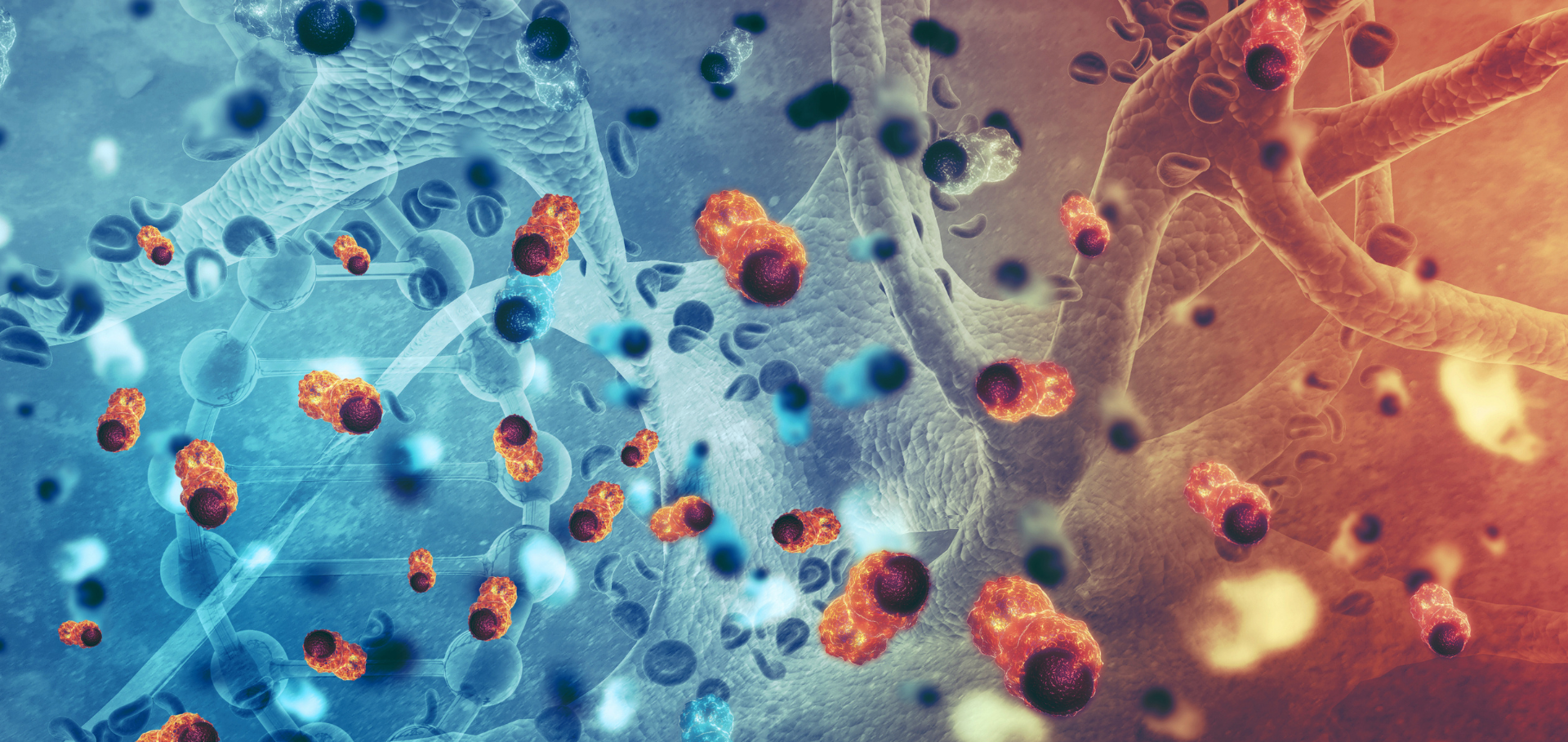Francesco Schettini, Mario Giuliano, Matteo Lambertini, Rupert Bartsch, David James Pinato, Concetta Elisa Onesti, Nadia Harbeck, Diana Lüftner, Sylvie Rottey, Peter A. van Dam, Khalil Zaman, Giorgio Mustacchi, Joseph Gligorov, Ahmad Awada, Mario Campone,
Hans Wildiers, Alessandra Gennari, Vivianne C. G. Tjan-Heijnen, Javier Cortes, Mariavittoria Locci, Ida Paris, Lucia Del Mastro, Sabino De Placido, Miguel Martín, Guy Jerusalem, Sergio Venturini, Giuseppe Curigliano and Daniele Generali
Anthracyclines Strike Back: Rediscovering Non-Pegylated Liposomal Doxorubicin in Current Therapeutic Scenarios of Breast Cancer,
Cancers (2021)
Affiliations:
Translational Genomics and Targeted Therapies in Solid Tumors Research Group,
Department of Medical Oncology, Hospital Clinic of Barcelona,
Department of Clinical Medicine and Surgery, University of Naples Federico II,
Department of Internal Medicine and Medical Specialties (DiMI), School of Medicine, University of Genova,
Department of Medical Oncology, U.O.C Clinica di Oncologia Medica, IRCCS Ospedale Policlinico San
Martino,
Division of Oncology, Department of Medicine 1, Medical University of Vienna,
Division of Cancer, Department of Surgery and Cancer, Imperial College London,
Department of Translational Medicine, Università del Piemonte Orientale “A. Avogadro”,
Clinical and Oncological Research Department, IRCCS Regina Elena National Cancer Institute,
Breast Center, Department OB&GYN and CCCLMU, LMU University Hospital,
Department of Hematology, Oncology and Tumor Immunology, Charité—Universitätsmedizin Berlin,
Department of Medical Oncology, UZ Gent,
Oncology Department, University Hospital Antwerp (UZA),
Oncology Department, Lausanne University Hospital CHUV,
Division of Medical Oncology, University of Trieste,
Department of Medical Oncology, Tenon Hospital, Institut Universitaire de Cancérologie AP-HP, Sorbonne
University,
Department of Medical Oncology, Institut Jules Bordet, Université Libre de Bruxelles,
Division of Medical Oncology, Institut de Cancérologie de l’Ouest-Pays de la Loire,
Department of General Medical Oncology, University Hospital Leuven,
Division of Medical Oncology, Maastricht University Medical Center (MUMC),
Oncology Department, IOB Institute of Oncology,
Vall d’Hebron Institute of Oncology (VHIO),
Department of Neuroscience, Reproductive Medicine, Odontostomatology, University of Naples Federico II,
Department of Woman and Child Health and Public Health, Woman Health Area, Fondazione Policlinico
Universitario A, Gemelli IRCCS,
Departamento de Medicina, Instituto de Investigación Sanitaria Gregorio Marañón Universidad
Complutense,
Division of Medical Oncology, CHU Sart Tilman Liège and University of Liège,
Management Department, University of Turin,
Istituto Europeo di Oncologia, IRCCS ed Università di Milano,
Department of Medicine, Surgery and Health Sciences, University of Trieste,
Multidisciplinary Unit of Breast Pathology and Translational Research, Cremona Hospital,
Simple Summary
Anthracyclines are among the most active chemotherapies in breast cancer (BC).
However, they can cause structural and cumulative dose-related cardiac damage; hence, they require careful administration after preliminary functional cardiac assessment and subsequent monitoring, along with a limitation in the cumulative dose delivered. Non-pegylated liposomal doxorubicin (NPLD) has been precisely developed to optimize the doxorubicin toxicity profile, while retaining its therapeutic efficacy, thanks to a reduced diffusion in normal tissues with preserved drug penetrance into cancer sites. This has allowed administration of NPLD beyond a conventional doxorubicin maximum cumulative dose, as well as in patients with cardiac comorbilities or anthracycline pretreatment. At present, NPLD is approved in Europe and Canada in combination with cyclophosphamide as the first line of metastatic HER2-negative BC. However, given the increasing complexity of the therapeutic scenario in this setting, we have carefully revised the most updated literature on the topic and dissected the potential role of NPLD in the evolving therapeutic algorithms.
Abstract
Anthracyclines are among the most active chemotherapies (CT) in breast cancer (BC).
However, cardiotoxicity is a risk and peculiar side effect that has been limiting their use in clinical practice, especially after the introduction of taxanes. Non-pegylated liposomal doxorubicin (NPLD) has been developed to optimize the toxicity profile induced by anthracyclines, while maintaining its unquestionable therapeutic index, thanks to its delivering characteristics that increase its diffusion in tumor tissues and reduce it in normal tissues. This feature allows NPLD to be safely administered
beyond the standard doxorubicin maximum cumulative dose of 450–480 mg/m2. Following three pivotal first-line phase III trials in HER2-negative metastatic BC (MBC), this drug was finally approved in combination with cyclophosphamide in this specific setting. Given the increasing complexity of the therapeutic scenario of HER2-negative MBC, we have carefully revised the most updated literature on the topic and dissected the potential role of NPLD in the evolving therapeutic algorithms.
Keywords
anthracyclines; breast cancer; triple negative; hormone receptor; metastatic; non-pegylated
liposomal doxorubicin

